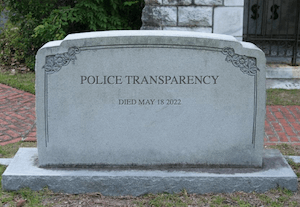FALLS, WYOMING COUNTY (WBRE/WYOU)— More federal budget cuts are on the way, this time, impacting the U.S. Department of Agriculture (USDA).
These cuts will do away with two pandemic-era programs which provided a billion dollars worth of funding to schools and food banks to purchase their food from local farms.
28/22 News Reporter Avery Nape met with a local farmer to find out how these cuts will be affecting business going forward.
Bedbugs discovered at Carbondale Area High School
The IU.S. Department of Agriculture recently announced it would do away with two programs which granted funding to schools and food banks.
One is the Local Food Purchase Assistance Cooperative Agreement- or LFPA. $420 million in funding was given to food banks to provide locally sourced food to people in need.
"We supply them with a full line of home-grown produce. Various kinds of peppers, tomatoes, cherry tomatoes, grape tomatoes, sweet corn, squash, cucumbers, pickles, beans," said Bill Hopkins, managing partner of Hopkins Farm.
Bill Hopkins, managing partner of Hopkins Farm in Falls, has been involved in the program since its inception in 2022. He delivered truck loads of produce to Weinberg Food Bank throughout their summer harvest.
He says the food bank purchases food from the farm at costs below market value. Much of that produce, would otherwise go to waste, making it a win-win for both parties.
"I have a good idea of what they need every week. And then if I have extras of other stuff and they have a use for it, they get that too," stated Hopkins.
The decision comes as the Trump administration slashes federal spending to reduce waste. The program was created under the Biden administration, using funding from the department's commodity credit corporation, a depression-era fund to purchase goods directly from farmers.
A USDA spokesperson said in an email to 28/22 News, in-part:
"As pandemic-era programs, the local food purchase assistance cooperative agreement program (LFPA) and the Local Food for Schools Cooperative Agreement Program (LFS) will now be sunsetted at the end of the performance period, marking a return to long-term, fiscally responsible initiatives."
They say this isn't an abrupt shift, and that the remainder of the programs' funding was released earlier this month to fulfill their existing commitments.
Hopkins says while the decision does not put his business in jeopardy, they'll still be taking a hit.
"I'm concerned it is going to impact our business, but I don't believe it'll be detrimental," added Hopkins.
Hopkins tells us that regardless of the cuts, he will continue supplying the Weinberg Food Bank with whatever leftover produce they have on-hand.
